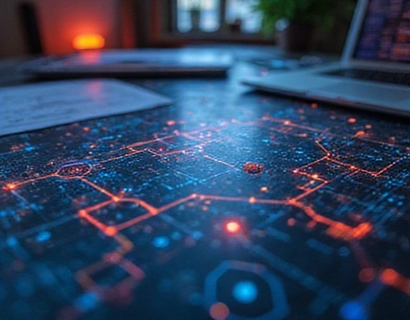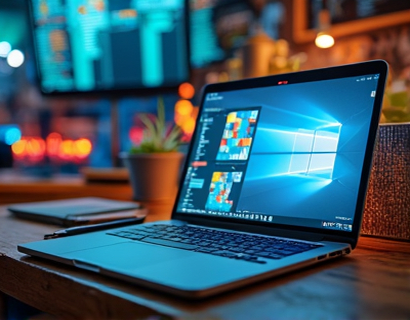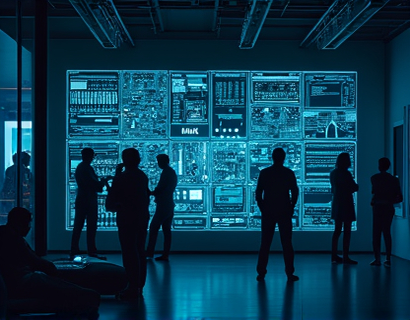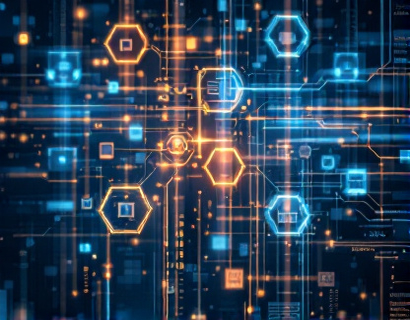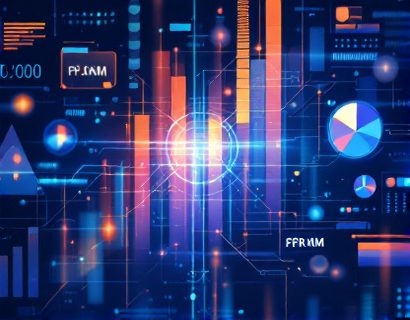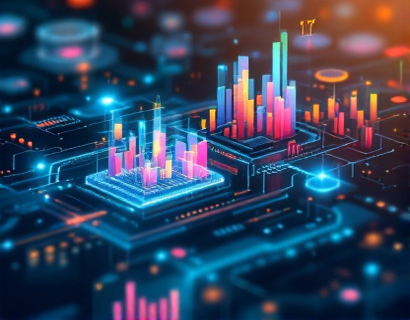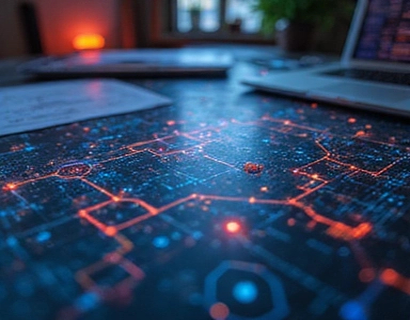Transforming User Engagement in the Ucosystem: The Synergy of Blockchain and AI
The intersection of blockchain technology and artificial intelligence (AI) is giving rise to a new era of digital engagement, fundamentally reshaping the tech ecosystem. This fusion is not just an incremental advancement but a transformative shift that enhances user experiences, fosters innovation, and opens up unprecedented opportunities for tech enthusiasts and early adopters. As we delve into this topic, it's essential to understand how these advanced technologies are synergizing to create more interactive, secure, and efficient digital environments.
Understanding Blockchain and AI
Blockchain technology, at its core, is a decentralized ledger that records transactions across multiple computers in such a way that the registered transactions cannot be altered retroactively. This inherent transparency and immutability make blockchain an ideal foundation for building trust in digital interactions. On the other hand, AI involves the simulation of human intelligence processes by machines, particularly computer systems. These processes include learning (the acquisition of information and rules for using it), reasoning (using rules to reach approximate or definite conclusions), and self-correction.
The combination of these two technologies creates a powerful toolset for enhancing user engagement. Blockchain ensures that interactions are secure and verifiable, while AI provides the intelligence to analyze user behavior, preferences, and patterns, enabling personalized and dynamic experiences.
Enhancing Security and Trust
One of the most significant benefits of integrating blockchain with AI is the enhancement of security and trust in digital platforms. Blockchain's decentralized nature means that there is no single point of failure, making it highly resistant to cyber attacks. AI can further bolster this security by continuously monitoring for anomalies and potential threats, using machine learning algorithms to detect and mitigate risks in real-time.
For instance, AI-driven security systems can analyze vast amounts of data to identify unusual patterns that might indicate a security breach. These systems can then automatically trigger protocols to secure the network, ensuring that user data remains protected. This level of security is crucial for building trust among users, especially in the realm of cryptocurrency and financial transactions where security concerns are paramount.
Personalized User Experiences
AI's ability to process and analyze large datasets makes it an invaluable asset for creating personalized user experiences. By leveraging blockchain, these experiences can be both secure and transparent. For example, AI algorithms can analyze a user's interaction history, preferences, and behavior to provide tailored content, recommendations, and services.
In the context of the Ucosystem, this means that users can enjoy a seamless and customized experience across various applications and services. Whether it's accessing decentralized applications (dApps), participating in governance tokens, or engaging with community-driven projects, AI ensures that each interaction is relevant and valuable. This personalization not only enhances user satisfaction but also increases engagement and retention.
Fraud Detection and Prevention
Fraud is a persistent issue in digital ecosystems, ranging from identity theft to transaction fraud. The combination of blockchain and AI offers robust solutions to detect and prevent such activities. AI algorithms can analyze transaction patterns and user behavior to identify suspicious activities in real-time. When combined with the immutable records of blockchain, these systems can provide a comprehensive approach to fraud prevention.
For example, AI can flag transactions that deviate from a user's normal behavior, triggering a review process. Blockchain ensures that these transactions are recorded transparently, making it easier to trace and address any fraudulent activities. This synergy not only protects users but also enhances the overall integrity of the digital ecosystem.
Decentralized Identity Management
Identity management is another area where blockchain and AI can make a significant impact. Traditional identity verification processes are often centralized, vulnerable to breaches, and prone to misuse. By using blockchain, identity data can be stored in a decentralized manner, giving users control over their personal information. AI can enhance this process by verifying identities through biometric data and behavioral analytics, ensuring that only authorized users access their accounts.
Decentralized identity solutions, powered by blockchain and AI, can streamline the verification process, reduce fraud, and provide users with a secure and private way to manage their identities. This is particularly important in the Ucosystem, where multiple services and applications require robust identity verification to ensure secure and seamless interactions.
Smart Contracts and Automated Interactions
Smart contracts, self-executing contracts with the terms directly written into code, are a cornerstone of blockchain technology. When combined with AI, smart contracts can become even more intelligent and responsive. AI can analyze conditions and execute smart contracts based on real-time data, ensuring that agreements are fulfilled accurately and efficiently.
For instance, in the context of the Ucosystem, smart contracts can automate payments, content delivery, and access controls based on user interactions and preferences. This automation not only reduces the need for intermediaries but also ensures that transactions are transparent and tamper-proof. AI enhances the reliability and adaptability of smart contracts, making them a powerful tool for automating complex processes.
Enhancing Community Governance
Community governance is a critical aspect of the Ucosystem, where users have a say in the development and direction of projects. Blockchain and AI can significantly improve governance by making it more transparent, inclusive, and efficient. AI can analyze user feedback, sentiment, and participation to inform decision-making processes. Blockchain ensures that all governance actions are recorded transparently and immutably, building trust among community members.
For example, AI-driven platforms can facilitate voting processes, ensuring that each vote is counted accurately and that the results are tamper-proof. Blockchain can store the voting records, providing a verifiable history of all governance actions. This combination empowers users, fosters community engagement, and ensures that decisions are made in the best interest of the ecosystem.
Innovative Marketing and User Acquisition
Marketing and user acquisition are essential for the growth of any digital platform. The integration of blockchain and AI offers innovative approaches to these challenges. AI can analyze market trends, user behavior, and competitor strategies to develop targeted marketing campaigns. Blockchain ensures that these campaigns are transparent and that user data is handled ethically and securely.
For instance, AI can identify the most effective channels and messages for reaching potential users, while blockchain can track the performance of these campaigns in a transparent manner. This data-driven approach, combined with the trust and security provided by blockchain, can significantly enhance user acquisition efforts and build a loyal user base.
Challenges and Considerations
While the potential of blockchain and AI in transforming user engagement is immense, there are several challenges and considerations to keep in mind. Scalability remains a significant issue for blockchain technology, as many networks struggle to handle high transaction volumes efficiently. AI algorithms require substantial computational resources and data privacy must be carefully managed to avoid ethical concerns.
However, ongoing research and development are addressing these challenges. Layer 2 solutions and more efficient consensus mechanisms are improving blockchain scalability, while advancements in AI, such as federated learning, are enhancing data privacy and efficiency.
Conclusion
The fusion of blockchain and AI is revolutionizing the tech ecosystem by enhancing security, personalization, fraud detection, identity management, smart contracts, community governance, and marketing. This synergy not only improves user experiences but also drives innovation and growth. As these technologies continue to evolve, their impact on digital engagement and app innovation will only become more profound, paving the way for a more secure, efficient, and user-centric future.







